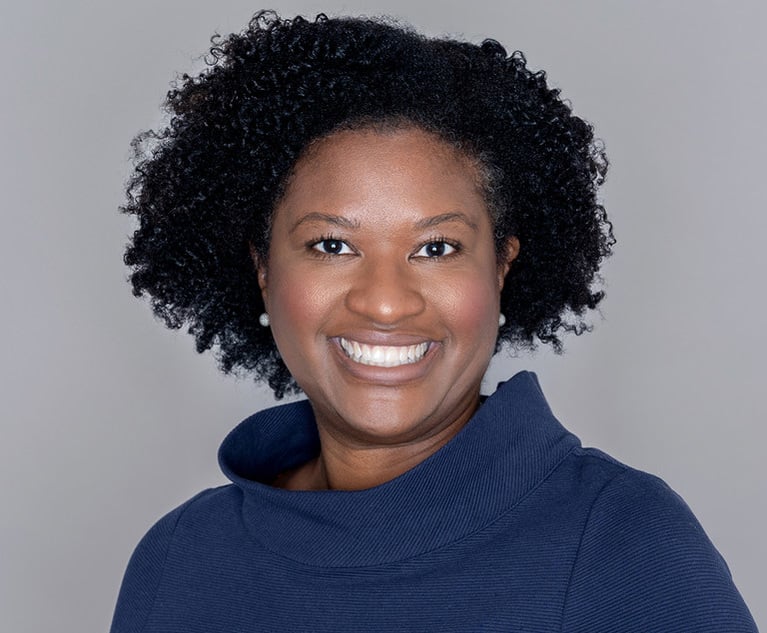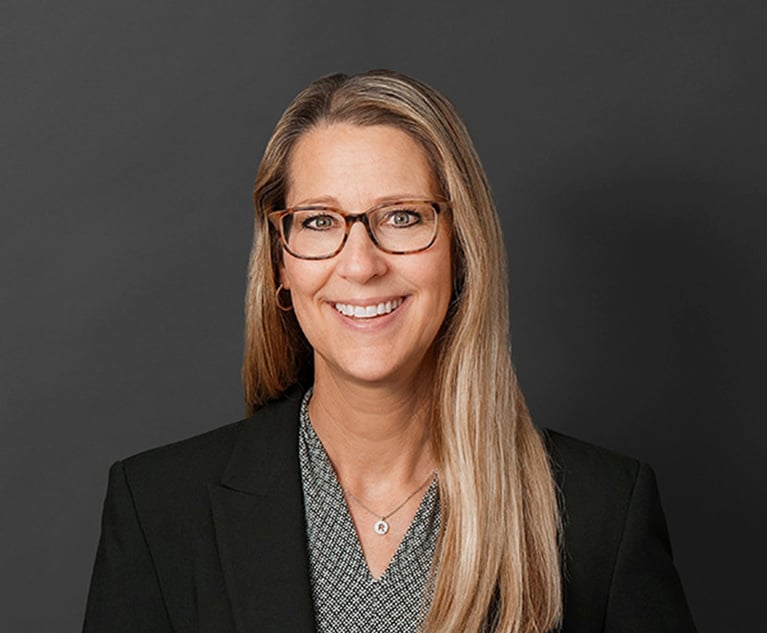Ruling Nixing Med Mal Suit Over Jehovah's Witness' Blood Transfusion Refusal Stands
The Pennsylvania Supreme Court has declined to weigh in on a Superior Court ruling that said a Jehovah's Witness' repeated written and verbal refusal to allow doctors to perform a blood transfusion prior to her death prevents her estate from proceeding with a medical malpractice lawsuit.
November 26, 2019 at 02:00 PM
4 minute read
 Photo: Shutterstock
Photo: Shutterstock
The Pennsylvania Supreme Court has declined to weigh in on a Superior Court ruling that said a Jehovah's Witness' repeated written and verbal refusal to allow doctors to perform a blood transfusion prior to her death prevents her estate from proceeding with a medical malpractice lawsuit.
In July 2017, a unanimous three-judge panel ruled in Seels v. Tenet Health System Hahnemann that the trial court made no errors in its denial of post-trial motions following a jury finding that Terri Seels-Davila's death was not caused by the negligence of her medical providers.
The Supreme Court denied allocatur in the case Nov. 19.
During her pregnancy in 2010, Seels-Davila indicated in a form signed with Hahnemann that no blood should be administered to her during her hospitalization, in accordance with her religious beliefs, according to Judge Jacqueline O. Shogan's opinion. When she encountered challenges during labor that led to blood loss, she reiterated verbally and in writing her refusal to accept blood, including telling one doctor she "'would rather die than receive blood products.'" Her doctors, certain she would die without blood transfusions, sought permission from her family members to do such a procedure and were rebuffed, the opinion said. She died in November 2010.
Raymond Seels, as administrator of his wife's estate and in his own right, filed a medical malpractice suit in 2012 alleging vicarious liability, corporate negligence, negligent infliction of emotional distress, wrongful death and survival. Medical experts for both parties in the ensuing trial testified that a blood transfusion would have saved Seels-Davila's life, the opinion said. The jury found the doctors' conduct did not fall below the applicable standard of care, and the trial court denied Seels' post-trial motions.
Seels raised four issues on appeal, including an assertion that the trial court wrongly precluded the testimony of an expert witness on the basis that the expert, Dr. Ronald Paynter, provided no evidence that he was an expert or had any experience in "bloodless medicine," a term Hahnemann used for patients who refused blood transfusions. The trial court determined that his testimony could only serve to confuse the jury, and Shogan agreed.
"Dr. Paynter appears to conflate the medical objective of minimizing blood loss during surgery with a 'bloodless medicine' program, which, as presented, is primarily administrative," Shogan said. "Dr. Paynter failed to establish that he had any specialized skill, knowledge or experience in the area of bloodless medicine that would have aided the jury in the search for truth."
Regarding Seels' argument that the trial court erred in excluding claims of corporate negligence, Shogan said the failure to produce an expert "competent to testify regarding appellees' bloodless medicine policies or the applicable standard of care" meant there was no support for the claim, and the trial court was correct to grant the hospital's motion for nonsuit.
Shogan also found the trial court was correct to deny Seels' motion in limine seeking to preclude the admission of consent-for-treatment evidence indicating that Seels-Davila consistently refused to accept potentially life-saving medical treatment.
"The consent forms were not admitted merely to show that Seels-Davila understood the risks of treatment yet elected to proceed; rather, the consents were admitted to prove that Seels-Davila knowingly refused treatments that would have saved her life," Shogan said. "Accordingly, appellant is due no relief on the issue."
Finally, Shogan denied Seels' argument that the verdict slip didn't permit the jury to consider "other" unnamed hospital staff members' negligence, finding the claim meritless because it failed to acknowledge or address a pretrial ruling striking allegations in Seels' complaint.
Rhonda Hill Wilson of Philadelphia represented Seels. Ruth Wessel of Burns White represented Hahnemann. Neither Wilson nor Wessel returned requests for comment.
This content has been archived. It is available through our partners, LexisNexis® and Bloomberg Law.
To view this content, please continue to their sites.
Not a Lexis Subscriber?
Subscribe Now
Not a Bloomberg Law Subscriber?
Subscribe Now
NOT FOR REPRINT
© 2025 ALM Global, LLC, All Rights Reserved. Request academic re-use from www.copyright.com. All other uses, submit a request to [email protected]. For more information visit Asset & Logo Licensing.
You Might Like
View All


Penn State Dickinson Law Dean Named President-Elect of Association of American Law Schools
Law Firms Mentioned
Trending Stories
Who Got The Work
J. Brugh Lower of Gibbons has entered an appearance for industrial equipment supplier Devco Corporation in a pending trademark infringement lawsuit. The suit, accusing the defendant of selling knock-off Graco products, was filed Dec. 18 in New Jersey District Court by Rivkin Radler on behalf of Graco Inc. and Graco Minnesota. The case, assigned to U.S. District Judge Zahid N. Quraishi, is 3:24-cv-11294, Graco Inc. et al v. Devco Corporation.
Who Got The Work
Rebecca Maller-Stein and Kent A. Yalowitz of Arnold & Porter Kaye Scholer have entered their appearances for Hanaco Venture Capital and its executives, Lior Prosor and David Frankel, in a pending securities lawsuit. The action, filed on Dec. 24 in New York Southern District Court by Zell, Aron & Co. on behalf of Goldeneye Advisors, accuses the defendants of negligently and fraudulently managing the plaintiff's $1 million investment. The case, assigned to U.S. District Judge Vernon S. Broderick, is 1:24-cv-09918, Goldeneye Advisors, LLC v. Hanaco Venture Capital, Ltd. et al.
Who Got The Work
Attorneys from A&O Shearman has stepped in as defense counsel for Toronto-Dominion Bank and other defendants in a pending securities class action. The suit, filed Dec. 11 in New York Southern District Court by Bleichmar Fonti & Auld, accuses the defendants of concealing the bank's 'pervasive' deficiencies in regards to its compliance with the Bank Secrecy Act and the quality of its anti-money laundering controls. The case, assigned to U.S. District Judge Arun Subramanian, is 1:24-cv-09445, Gonzalez v. The Toronto-Dominion Bank et al.
Who Got The Work
Crown Castle International, a Pennsylvania company providing shared communications infrastructure, has turned to Luke D. Wolf of Gordon Rees Scully Mansukhani to fend off a pending breach-of-contract lawsuit. The court action, filed Nov. 25 in Michigan Eastern District Court by Hooper Hathaway PC on behalf of The Town Residences LLC, accuses Crown Castle of failing to transfer approximately $30,000 in utility payments from T-Mobile in breach of a roof-top lease and assignment agreement. The case, assigned to U.S. District Judge Susan K. Declercq, is 2:24-cv-13131, The Town Residences LLC v. T-Mobile US, Inc. et al.
Who Got The Work
Wilfred P. Coronato and Daniel M. Schwartz of McCarter & English have stepped in as defense counsel to Electrolux Home Products Inc. in a pending product liability lawsuit. The court action, filed Nov. 26 in New York Eastern District Court by Poulos Lopiccolo PC and Nagel Rice LLP on behalf of David Stern, alleges that the defendant's refrigerators’ drawers and shelving repeatedly break and fall apart within months after purchase. The case, assigned to U.S. District Judge Joan M. Azrack, is 2:24-cv-08204, Stern v. Electrolux Home Products, Inc.
Featured Firms
Law Offices of Gary Martin Hays & Associates, P.C.
(470) 294-1674
Law Offices of Mark E. Salomone
(857) 444-6468
Smith & Hassler
(713) 739-1250






